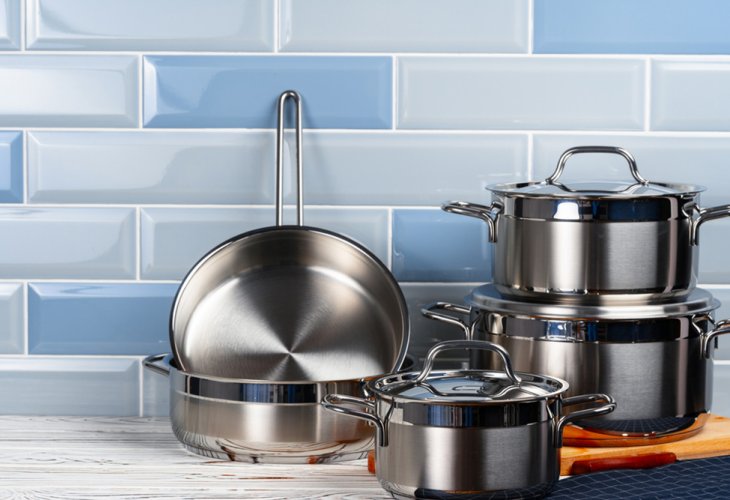Choosing the Right Cookware: What Are You Using?
As vital as the food itself is the cookware it's prepared in. Discover which materials are safest for cooking and which to avoid.
 (Photo: Shutterstock)
(Photo: Shutterstock)We care about what we eat. It's just as important to consider what cookware it's prepared in and what it might absorb along the way.
Our cooking utensils are made from different materials, so what's the best choice?
Glass cookware is the safest option to use. It doesn't release particles, even at the highest temperatures. Although it's less convenient due to its weight, from a health perspective, it's the best choice.
Stainless steel is an alloy of metals, a combination of nickel, chromium, and steel, and is considered safe. Some people are sensitive to nickel, so it's important to note: when the utensil is worn, small amounts of nickel may be released. Anyone allergic should ensure their utensils aren't worn or scratched.
A rusty stainless steel utensil is not suitable as it's likely a poor imitation.
Teflon has an advantage: food doesn't stick, so oil isn't needed. The main issue is with the toxic substances released at high temperatures, especially when the utensil becomes worn and scratched. The particles are emitted and absorbed into the food. It's recommended to use Teflon sparingly, keeping the heat low and ensuring spoon contact is only with wood, to avoid scratches.
A scratched Teflon pan or pot is done with its job.
Colorful, beautifully designed pots with a non-stick ceramic coating are easy to clean and allow low-oil cooking. The problem is that most contain lead and cadmium, both of which can seep into food and cause illnesses.
This happens when the coating cracks or is scratched. Therefore, it's important to replace the utensils frequently and not to use damaged ones. Even enamelware, when peeling, has particles that can absorb into food and cause harm.
Cast iron cookware is durable and provides even heat distribution, making it ideal for long cooking. Iron leaches into food, which is beneficial for those with anemia. Those with excess iron should avoid cooking in these cookware.
Aluminum is a light, convenient, and inexpensive material that distributes heat efficiently, but these pots are not recommended, especially with acidic, salty, and spicy foods, as aluminum can penetrate food and lead to memory issues and central nervous system diseases. Old or scratched aluminum cookware can cause more significant damage.
Disposable pans are also made of aluminum.
Zohara Sharvit is a certified N.D naturopath and iris diagnosis expert with many years of experience in treatment and workshop facilitation. To book a free workshop, call 073-2221290.

